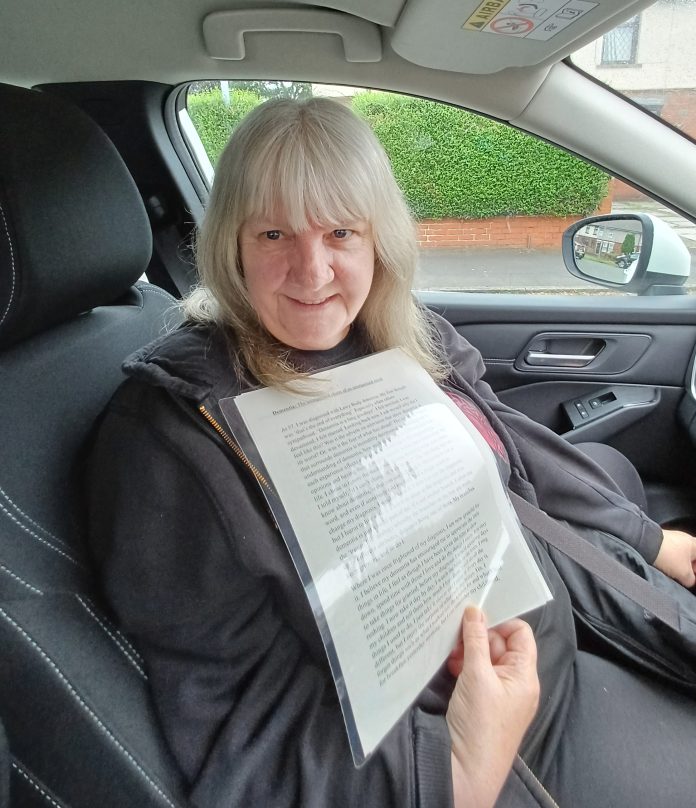Hazel Britton, who is supported by Wigan’s Later Life and Memory Service (LLAMS) at Greater Manchester Mental Health NHS Foundation Trust (GMMH), has written a short memoir to help reduce the stigma of living with dementia.
The term ‘dementia’ describes a set of symptoms that include loss of memory, mood changes, and problems with communication and reasoning. There are many types of dementia. The most common are Alzheimer’s disease and vascular dementia. Dementia is progressive,which means the symptoms will gradually get worse.
Hazel was just 57 when she received her diagnosis, following a PET scan a few years after she began to experience symptoms.
By her own admission, Hazel was devastated and believed that ‘her life was over,’ As many people do in this situation, Hazel turned to Google for advice and received a barrage of frightening information, including a life expectancy of just five to eight years.
Realising that she needed more expert support, Hazel was referred by her GP into GMMH. where she was prescribed medication to help manage her frightening symptoms such as hallucinations and was paired up with Occupational Therapist, Gill.
Wigan’s Later Life and Memory Service (LLAMS) team works with service users in a multi-disciplinary way, to ensure that all of their needs are met, from assessment to diagnosis to treatment. In addition, the team offers group support for both the carer and
the service user at ‘Post Diagnostic Education Groups’.
One of the exercises that Hazel was encouraged to do to help her process her diagnosis, was to write a ‘Dementia Memoir,’ a short piece of writing talking about her experience of living with dementia, and words to encourage others who may be in a similar situation.
Hazel even talks about how she is grateful for her diagnosis and believes dementia has encouraged her to appreciate the little things in life; spending time with those she loves and doing the things she enjoys.
Hazel said,
“The real difficulty at the beginning of my diagnosis was acknowledging the support around me. But once I did, I began to flourish.
“Conversations about the diagnosis, treatment and progression are tricky, and it can be tempting to ignore them, but the outcomes of these conversations enhanced my quality of life.
“Without the support I received from Wigan’s Later Life and Memory Service, I wouldn’t be where I am today. I now have a positive outlook, not only on my diagnosis, but on my future!”
Megan Houghton, Mental Health and Wellbeing Practitioner, GMMH Later Life and Memory Team said,
“Working with Hazel has been incredibly insightful, and I have learnt so much from her.The aim of this piece of work is to encourage a new perspective on dementia, for those with a diagnosis and even those without.Dementia affects a profound number of people year on year, and we just hope this memoir can somewhat help reduce the stigma around it”.







